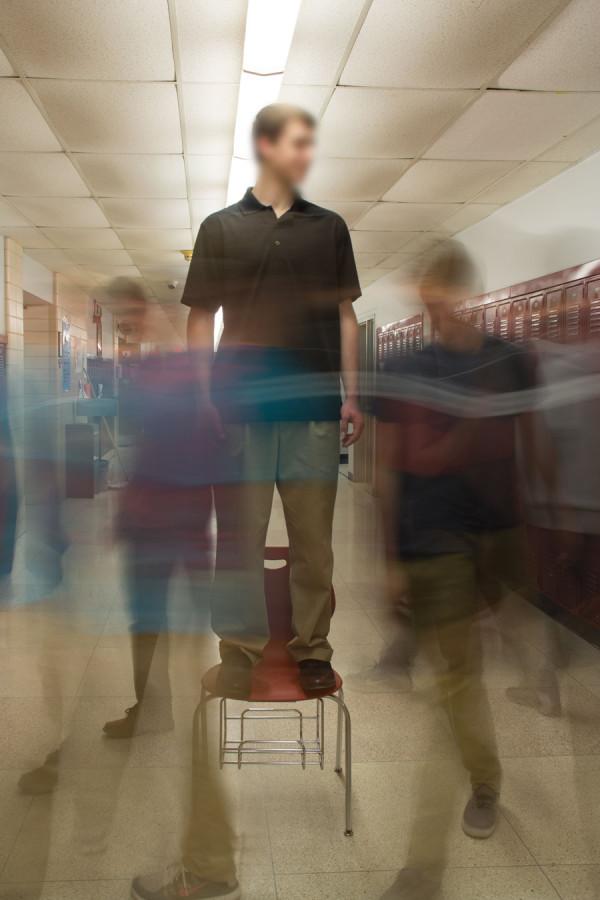What It Feels Like to Have an Anxiety Disorder
As told by anonymous.
Sweat drips.
Hands tremble.
Eyes shake.
Chest cramps.
Body aches.
Heart races.
Suddenly I feel like I’m not breathing anymore.
There’s a lump in my throat that’s suffocating me. I feel as if I’ll never speak again.
“What’s wrong? Are you okay? Just calm down, stop worrying so much,” the people around me reiterate.
I try to formulate a response. I can’t speak. Not being able to speak makes me more aggravated.
“Why does this happen to me? When will it end? I’m pathetic,” I think to myself. These questions, followed by hundreds more, haunt me. Sometimes only one at a time, sometimes all at once.
Worrying is normal. Everyone gets anxious sometimes.
But for me, it’s an all-day, most everyday routine. For me, worries and fears are so constant that I am unable to relax or function. It gets to the point where I can no longer sleep, or enjoy activities I used to have a passion for, or go to certain places or be around certain people. These fears have taken over my life.
The thing about having an anxiety disorder is that I know it’s stupid. I deeply know that whatever happened wasn’t a big deal and it shouldn’t be affecting me this terribly. But that’s where the disorder kicks in; suddenly the small thing is a large thing and it keeps growing in my head, flooding my chest and trying to escape from under my skin. I know with all of my being that I’m being a bit ridiculous and I hate every second of it. And the fact that many people do not recognize or have patience for this illness only makes everything worse.
Having social anxiety is especially difficult in school when I have to participate in discussions and present projects, or just finding someone to sit with at lunch; simple things many people don’t think twice about. It really has a lasting impact on how I live my life. Social anxiety is not “I’m going to stay home and watch Netflix because I hate people;” social anxiety is “I want to desperately go out with my friends and have a fun time but I cannot physically get myself to go.” Anxiety does not mean being shy and “cute.” These are real mental disorders.
What many people do not understand is that there are many different types of anxiety disorders, the main ones being Generalized Anxiety Disorder and Social Anxiety Disorder. The two can go hand in hand. I mainly suffer from GAD, but still have issues with social anxiety.
Like myself, many who suffer from an anxiety disorder have other disorders as a result of their anxiety. One of the main ones is Agoraphobia. I once had a panic attack at a concert from being in the crowd surrounded by so many people, and my friends had to pretty much carry me out. Now, if I even get myself to go to a concert, I cannot go into the crowd because I have such a strong fear of that happening again. If I’m ever surrounded by a crowd, all I can think of is that experience. It’s one of my triggers.
It is important for others to know and understand the different types of anxiety disorders. I have noticed that recently, due to pop culture and other factors, teens and young adults have been glamorizing mental disorders in order to appear unique or to gain attention from others. It is essential that everyone understands the true harms of a mental disorder and to not pretend to have one. Mental disorders are not a joke or anything to mess with; it is also somewhat insulting to those who actually have the disorder.
I am not my disorder. People with any disorder are not their disorder. These are real illnesses. It is okay to worry. It is okay to be scared. There are treatments and people willing to help.
For the longest time, I kept my anxiety hidden from everyone. I was scared no one would understand. I was scared of feeling rejected more than I already do. But when I finally told those who care about me, they were there to help. They help talk me down from my panic attacks and make me feel safe. I recommend that those suffering from anxiety seek the help that they need and deserve.
This is what it feels like to have an anxiety disorder.
If you or someone you know is currently suffering from anxiety do not hesitate to talk to an adult—parents, family, teachers, administrators or counselors. The Mental Health Association of Illinois Valley has a hotline available Monday-Friday if you are struggling and need to speak to someone. Call 309-673-7373 to reach the hotline. Other organizations offer similar services and can be found by a quick online search.


